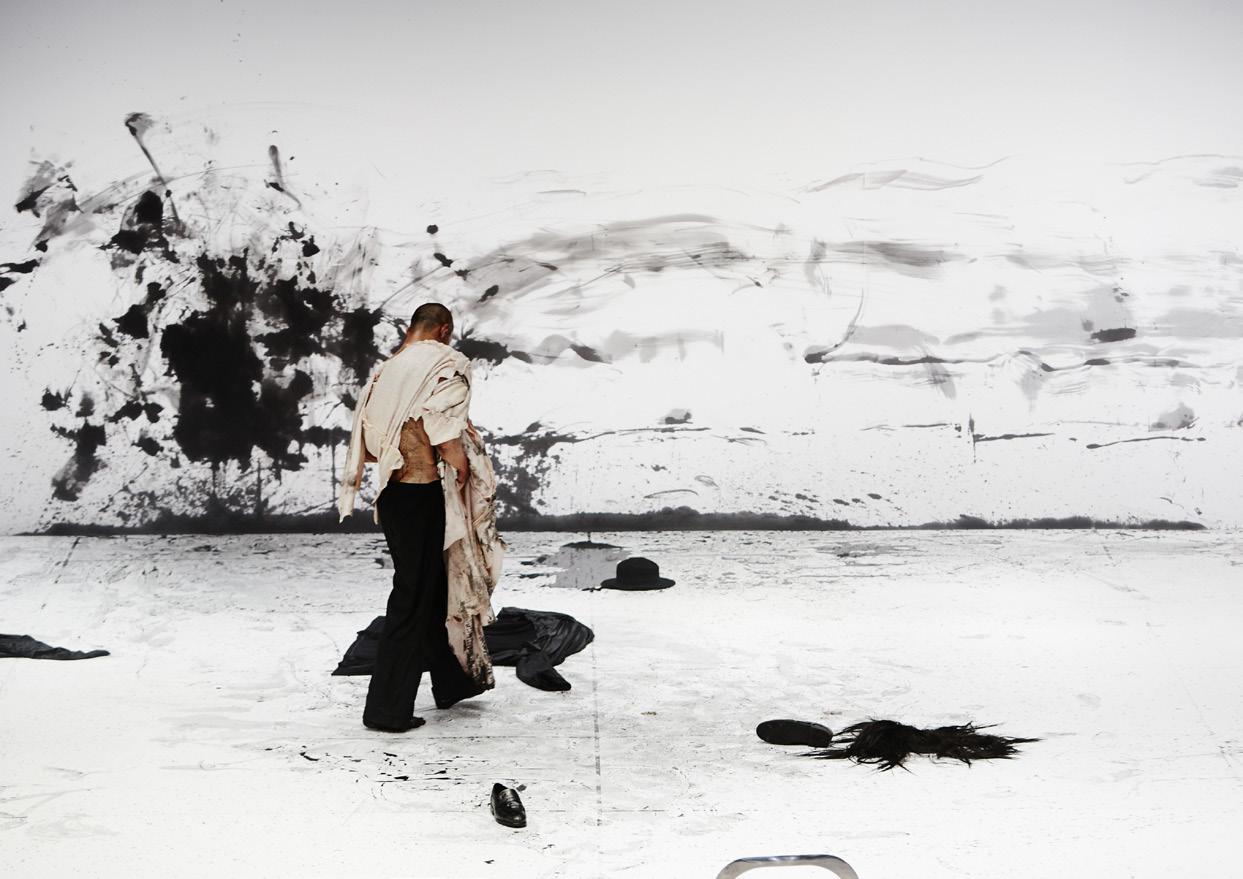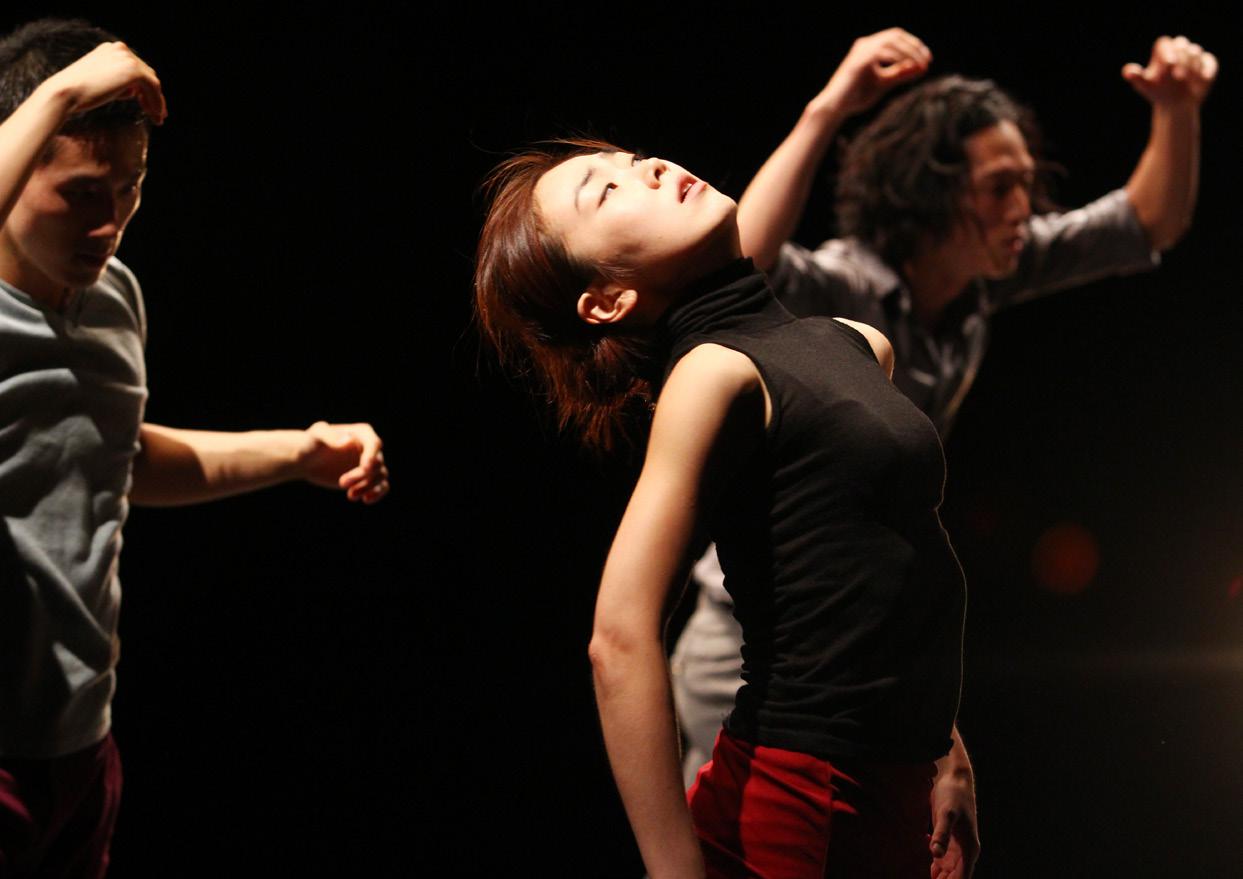Performance Info
After studying Time Art in school, Kim Ji-sun has since been presenting her works with a focus on social systems, cultures, and no man’s lands (multi-layered spaces which are physical in nature and created between the laws, norms, or physical borders between countries, as well as marginalized spaces in existing and online worlds). Recently, she concentrated more on the problem of sentient understanding between the world and an individual,and her work, Deep Present, probed into the anthropocentric value system and understanding of the world as it is mirrored by artificial intelligence. Her works include Climax of the Next Scene, WellStealing, and Stocks 3. Immigrant Migration.
Q. Can you tell us what made you decide to work as an artist in the field now?
A. Before I decided to study at art school, I was in a rock band, had part-time jobs, and travelled to different places with only a backpack. I became interested in audiovisuals used in music concerts, so I was going to major in visual design, but because I didn’t know very much about that major, I ended up applying for Time Art, which included video art. But I became fascinated by my studies, so I have been working in the field ever since. I started backpacking to places when I was seventeen, and I have spent a lot of time on the road, and the people I met on the road and their stories have been a huge influence on my work. Those experiences shaped the attitude I have towards life, and that attitude became manifested in my works. There is a story I tell people when they ask me about my work. A friend of mine travelled to Afghanistan in 2004. It was after America launched its attack on the country, so Americans were prohibited from travelling to Afghanistan, but my friend met an American backpacker travelling in the country. My friend became curious and asked how he was able to travel there. The American backpacker told my friend that the immigration officer at the border could not read English, so showing the officer his passport, which said United States, he lied and said he was from France.
We live inside seemingly impenetrable systems such as national borders, capitalism, or the media, but where these systems meet, you find odd niches or loopholes like the story of my friend. Those odd holes or places are not legitimate, nor are they illegal. Before I start my work, what I do is find those loopholes and try to live there.
At the very beginning of my career, I crossed borders with a passport that was torn. To prevent any passport from being forged, any damage, especially on the pages that contain personal information, is considered suspect. But my passport was ripped and I had to tape it, but with that passport, I travelled to London without a problem after the subway terrorist attack in 2005, not to mention to ten other countries. In the same year, I stayed in Berlin, and with friends I met there, we tried to analyze the legal and social systems, and finding loopholes, we discovered ways to travel or enjoy performances for free. These experiences led to the production of Well-Stealing. Well-Stealing was a project about researching and publicizing ways to steal well for the wellbeing of everyone in a capitalist society where every value is calculated into money. It was like a prank played on the system; this project was not to destroy it, but to make our way into the system and manipulate it to our benefit. To go into a place that is off-limits, we wore hoodies that said “Invisible Man,” and we discovered and publicized a way to have a free hot chocolate at Starbucks so that the chain coffee shop could be ccupied by young people, and we promoted legal theft in megastores.
Q. You said that your perspective on your work changed since Climax of the Next Scene in 2015. Can you tell us about your production prior to Climax of the Next Scene and also about the changed perspective afterwards?
A. While I was working on Stocks 3. Immigrant Migration in 2011, I created the guerrilla media group called Pan-Asia International Conference. It is a phantom media organization which I founded with only me as its member. Wearing a T-shirt that said, “What the…,” I visited election campaign sites and stood behind politicians or candidates so that I could be exposed in the media and news in order to disrupt their political messages. In the performance, I probed the nature of journalism by holding an interview to select reporters to work for Pan-Asia International Conference. In the performance version of Well-Stealing in 2012, about one hundred people showed up at Seoul Plaza in front of City Hall, where protests were being prohibited at the time. The people showed up wearing a hoodie that said “Invisible Man” or “Pretend You Don’t See Me,” which glowed in the dark. For two years starting in 2014, I stayed at Rijksakademie, a residential organization for visual arts in Amsterdam, and presented No Man’s Land in
the form of display art. Before, I wanted to show the illusionary nature of the system by tearing into its insides in my work, but suddenly, it occurred to me that even that might be in the service of the system, too. A long time ago, I read in a science book that astrophysicists attempted the thought experiment with an imaginary box as the universe because they couldn’t go outside the universe for real. If there was a box that contained the system called “the world,” I wondered if it would be possible to think outside that box, and I wondered if this thought experiment could be conducted open world games online. These questions became the start of Climax of the Next Scene. And I saw online players who kept killing themselves in online games where survival was the only mission and objective. I became intrigued by their attitudes and behaviors, so after wandering online game for several months to find them, I conducted interviews with them in online game. I don’t think dividing real vs. virtual in online games is very appropriate to probing the phenomenon and sensory understanding of the virtual world. Instead of the dichotomous view of real vs. virtual, I wanted to try the virtual mirroring the virtual. In Climax of the Next Scene, I wanted to imagine the outside of a system, and thereby have a closer look into the world of that system, but it ended up being a project or question that was asked of myself as someone who couldn’t really imagine an escape from that world.
Q. The key idea in your most recent work, Deep Present, was outsourcing. Can you tell us what motivated you to use the technology of artificial intelligence in the work where you wanted to focus on the concept of outsourcing?
A While working on Climax of the Next Scene, I came to ponder over today’s “sense of reality” as in how we understand and experience this world we are living in. Our experiences of the actual world are filtered as much as the world we experience online is. Companies started outsourcing their work except for core technology, and now even wars are fought by outsourced regional armed groups, and experiences that are sensory in nature are being outsourced. Outsourcing is the result of the human desire to escape from uncomfortable senses and the product of the capitalistic mechanism that can resolve such a problem most effectively, and now it has become the most fundamental mechanism of our present-day society. And the last stage of this outsourcing must be the outsourcing of human reasoning; in short, artificial ntelligence. We consign even human reasoning to something else because that eliminates many elements of uncertainty which are an inevitable part of life. AI is able to analyze more information, and to analyze it more accurately and effectively than a human brain, and therefore, it minimizes the element of uncertainty. I became intrigued by the outsourcing of human reasoning because by doing that, people don’t have to think about“why” or “how.” AI produces the most optimal outcome, but it cannot retrace
the process. This transformation of the very nature of human reasoning centered on the questions of why or how might be the starting point of a very fundamental social change. And when human reasoning is outsourced, it becomes programmed by someone else and operates within a designed framework called an algorithm. And I began to wonder about the programmer, and the purpose of the design, and whether the questions of why and how could be asked to the designed outcome. With these questions, I became a part of an AI development project with the Intelligence System Research Lab at Korea Aerospace University. We developed a conversational AI based on deep-learning models. Amazon’s Alexa or Apple’s Siri is also a conversational AI. The majority of conversational AI function by acquiring information from big data so that they can have a conversation on any topic, but in our project, we developed an AI that acquires nformation only on a certain topic and therefore is able to have a conversation only on that
topic. I created four characters with very different personalities and trained each character with a different set of data. With different data input, each character had a vastly different view of the world, and when asked the same question, they produced different answers. While the characters were being
developed, I continued talking to them, and I produced a scenario based on those conversations. Deep Present was presented in a performance format with the AI characters on stage discussing about the system of outsourcing.
Q. Can you tell us about issues that you are interested in now, and also about the future direction of your work?
A. Instead of fixed and existing ideas about the world and myself, I am still exploring the world and myself as they are sensed and felt. And I am presently working on how the thought process manifest as game maps becomes metasensory experiences through map playing.
About Kim Ji-sun’s works
Stocks 3. Immigrant Migration (2011)
Pan-Asia International Conference is a journalist organization founded in Seoul and it is expanding to Mumbai, Bangkok, and other Asian countries. As the founder and only member of the organization, Kim Ji-sun reports on press conferences and other media events not as Kim Ji-sun the artist, but as a journalist with a press ID issued from PAIC, like a phantom travelling a thousand miles. Inside the seemingly impenetrable system of capitalism, there are places where different borders meet, and in this work, she discovers these places of ambivalence that are unlawful but not illegal, and during this performative work, she traverses the borders between personal experience and media such as news and advertisements, thereby probing the meaning of communication and places it is used and dispensed nowadays. There are places of fissures or cracks in the seemingly inviolable system of capitalism, but who is disclosing them, and what are they doing to disclose them? And what can we, as the ones who claim to be bystanders, do about what’s taking place there? As an artist, Kim Ji-sun has been conducting these small and subversive activities to create virtual fissures in the façade of grandiose political reality.
Climax of the Next Scene (2015)
Inspired by astrophysicists’ thought experiment of seeing the universe from outside the box called the universe, Kim Ji-sun tries to imagine the outside the box called the world. Under the ideology of capitalism, our sensory experiences are also being outsourced, and thereby, cutting away our sensory connection with the world. This work begins from the castrated senses. After witnessing online players who kept killing themselves in online games, she wandered online for several months to find them and to interview them in person. In her work, two Teletubbies located in two different online games have a face-talk about players they have seen: the players who lived online like hikikomori in their online home, players who studied 100 ways of dying in online games, or players who spent months on the Minecraft Map to get to the end of the map. A world traveler who experienced the Arab Spring and the 2011 England riots listens to those stories and asks questions. Will it be possible to exit from the world without any real, first-hand sensory experiences? The question itself is a cruel one which entails total denial of oneself. The production asks if we truly want to exit from the game.
Deep Present (2018)
Deep Present places outsourcing as the key engine of our system and sees Artificial Intelligence as its ultimate product. Outsourcing originated from the industrial sector to reduce cost and enhance efficiency. Such strategy has gone as far as delegating murder or outsourcing risk as shown in proxy wars. Ahead of us lies the final stage of outsourcing the last remaining human ability: the ability to reason. What questions do we need to raise at this time point? This replica of our intelligence becomes a mirror to spark fundamental, yet pressing questions about ourselves and the present society. Where do we come from? What are we? Where are we going? Contemplations, questions, dreams arising between these two worlds of minds will come across, collide, glimmer and disappear on stage.
Photograph Copyright :
1. (Main Image) Climax of the Next Scene ⒸKim Ji-sun
2. Climax of the Next Scene ⒸAsian Arts Theatre(Park Soo-hwan)
3. Deep Present ⒸSeong Eui-seok
4. Deep Present ⒸSeong Eui-seok
Production Details
- Director
Reference
- E-mailhasubinmanse@naver.com








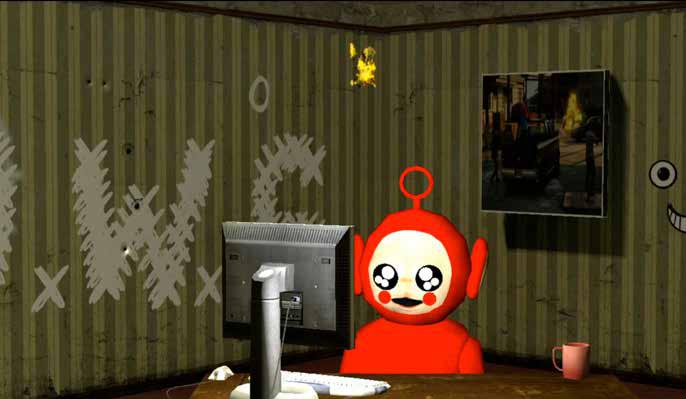
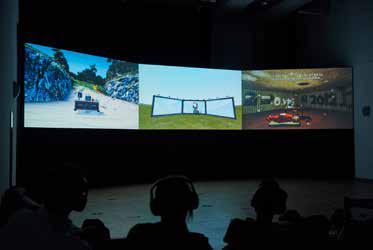
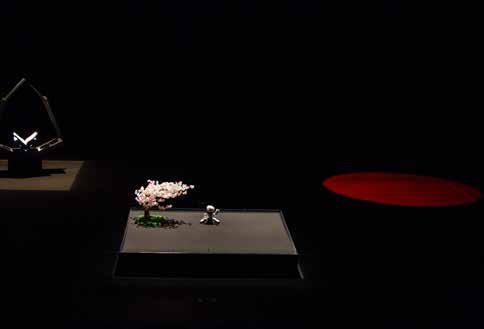
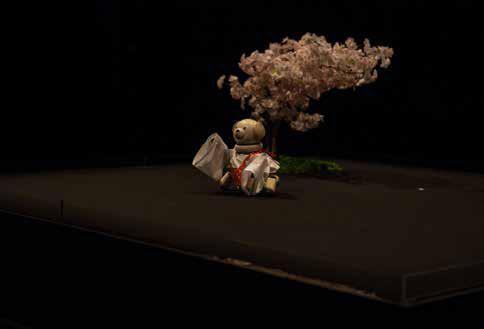

 PREV
PREV
.jpeg)
.jpg)
_(c)포스(FORCE).jpg)
_(c)장석현_코끼리들이 웃는다(SUKHYUN JANG_ELEPHANTS LAUGH).jpg)
.jpg)
.jpg)
_(c)한받(Hahn Vad).jpg)
_(c)비주얼씨어터 꽃(CCOT)(1).jpg)
_(c)봉앤줄 (BONGnJOULE)(1).jpg)
_(c)대한민국연극제 2019 (Korea Theater Festival 2019)(0).jpg)
_(c)몸꼴(Momggol)(1).jpg)
2018MODAFE_Taemin Cho (2).jpg)
